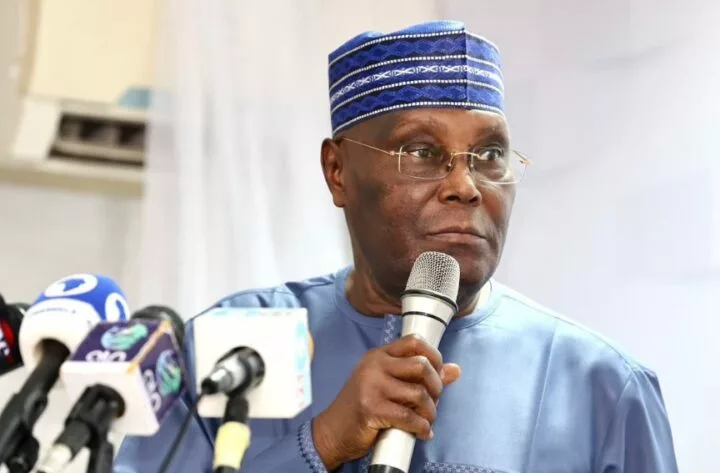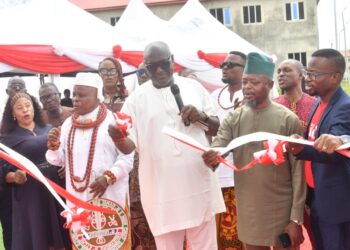Former Vice President of Nigeria, Atiku Abubakar, has voiced strong criticism against President Bola Tinubu’s foreign exchange (FX) policy, denouncing it as hastily put together and lacking proper consultations.
In a statement shared on his social media platform, Atiku lambasted the FX policy for exacerbating economic crises and increasing poverty levels in the country.
According to Atiku, the government’s failure to involve the Central Bank of Nigeria (CBN) in designing and implementing a comprehensive FX management policy has resulted in issues such as liquidity constraints, unregulated demand, and rate disparities.
He emphasized the need for the government to heed advice from the opposition and seek assistance in rectifying the economy.
“The Government did not allow the CBN the independence to design and implement a sound FX Management Policy that would have dealt with such issues as increasing liquidity, curtailing/regulating demand, dealing with FX backlogs and rate convergence,” Atiku stated.
Offering potential solutions to address the growing FX crisis, Atiku proposed the adoption of a managed-float policy instead of a free-float FX regime.
He also emphasized the importance of bolstering foreign exchange reserves to enhance market liquidity.
“Nigeria’s major challenge is the persistent FX illiquidity occasioned by limited foreign exchange inflows to the country. Without sufficient FX reserves, confidence in the Nigerian economy will remain low, and Naira will remain under pressure,” he explained.
Highlighting the need for a gradualist approach to FX management, Atiku recommended a managed-floating system where the CBN intervenes to stabilize the value of the Naira. He emphasized the importance of responsible control to curb speculative activities and ensure market stability.
President Tinubu implemented a unified FX system last July to streamline exchange rates and minimize arbitrage. While this policy succeeded in reducing the premium gap between official and parallel markets, it led to over 100 per cent devaluation of the Naira against the Dollar.
Despite expectations of significant foreign exchange inflows, Nigeria’s external reserves have remained steady at $33 billion. However, concerns persist regarding potential declines in reserves due to economic challenges and the need to address underlying issues such as inflation and low export rates.
Yemi Cardoso, during an interview on Arise TV, emphasized that stabilizing the Naira hinges on tackling fundamental economic issues, including inflation control and promoting export growth.
“The eventual stability of the Naira will be driven by our ability to address the fundamental issues affecting our economy…bring inflation under control and promote the growth of Nigerian businesses such that we eventually export much more than we consume as a nation,” Cardoso remarked.





